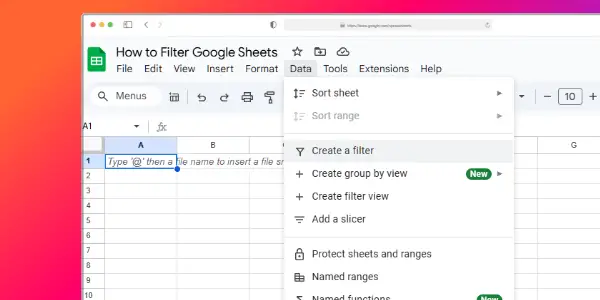Program management is becoming an essential part of every industry, and the great responsibility program managers have can sometimes mean a lot of pressure is involved. So, is program management a stressful job?
Program management is a stressful job because it requires constant attention to detail, organization, and communication with clients. They operate as a link between ideas for a product, different projects, and finalizing that product. Juggling all these elements can be stress-inducing.
If you want to know exactly why program management’s a stressful job, continue reading. Moreover, if you’re already a program manager or planning on becoming one, you might be interested in how to reduce all that stress, so keep reading to find out.
Why Is Program Management a Stressful Job?
Program management is one of those professions that everybody thinks they would be good at, when in fact, it can be one of the most stressful jobs there is.
That is because program managers are in charge of so many components of a business. On top of that, management can be quick to blame them if a product or project isn’t as successful as everybody hoped it would be.
If you’re not sure what program managers do, check my other article, where I explain what programme management is.
Now, let’s see why being a program manager can be nerve-racking.
Program Managers Oversee Project Managers
Many people often think that program and project managers are the same, or at least similar. After all, their titles are pretty similar. Well, these two titles don’t mean the same thing.
Project managers are responsible for their individual project teams and project plans. So, their role is limited to their individual project.
On the other hand, one of program managers’ responsibilities is to overlook multiple project managers’ work.
So, program managers aren’t familiar with individual projects as much as project managers; still, they have to make important decisions and usually oversee more than one project manager.
As you can imagine, overseeing multiple project managers and their plans to create a coherent link between project teams can be pretty stressful.
Are you unsure if you want to be a project or a program manager? Don’t worry; I wrote an article about the differences between the two, and what would suit you best.
Program Managers Have to Come Up With a Program Plan
An individual project manager will have their own project plan. These plans are provided to the program manager, who uses them to create a program plan.
A program plan combines all other project plans and allocates the necessary spending. Program plans also need to have detailed schedules with all the different aims, objectives, and goals for a certain product.
A lot of pressure comes from combining multiple project plans, as well as from ensuring that everything works smoothly since different project plans can have overlapping schedule issues with deadlines and a pull on joint resources.
Program Managers Have To Think About All the Requirements
When developing a business strategy that will be broken down into different projects, program managers have to take into account all the possible requirements and funds each will have.
Requirements can range from the number of staff who’ll be working on a product, the number of project teams, the development resource required and the available technology. It can also include the financial side – how much money will a company have to spend, or borrow, to achieve the desired outcome.
All of this is stressful because you’ll be the one to blame if a serious mistake happens because of your miscalculations. Many program managers can have many sleepless nights because of this.
Program Managers Have To Evaluate the Entire Program
Once all the requirements are taken care of, the program can start. Programs typically span multiple years and will evolve over time.
They ensure everyone in the business understands the overall priorities. For example, if project A and B both need IT development work, and A has a higher priority, then the IT development team know that the work on project A should be completed before starting project B.
The benefit of viewing all projects via a program plan is that it gives a higher level overview, which is better suited for senior management.
The appointed program manager will evaluate each of the projects, checking to see if they are on track to meet project goals.
The evaluation process includes any necessary changes that weren’t planned in case something goes wrong. So, in this big mechanism of different clogs (program), program managers are the ones controlling the smooth operation of that mechanism, which is naturally very stressful.
Not All Program Managers Are Suitable for Every Program
One very common reason many program managers are stressed out because of their work is that maybe, that particular program isn’t suitable for that program manager. This is something many companies and even program managers themselves don’t want to admit.
Research that was published in the International Journal of Project Management in 2016 shows that not all programs have the same components, and they shouldn’t be viewed as some kind of table of activities that are always the same.
What’s more, the study suggests that, because of different types of programs, program managers aren’t always suitable for every program. There are some programs where a program manager will be very good; in others, they might feel overwhelming stress and burnout.
How To Reduce Stress if You’re a Program Manager?
As a program manager, you’re likely to get stressed out from time to time. It doesn’t matter how many times you’ve done it before, it always happens again. And it never gets any easier.
But here’s the thing…you don’t have to live with it. In fact, you can reduce your stress levels significantly if you learn how to manage it properly.
Trust Your Team
Stress often comes when program managers feel like they need to constantly oversee every step (small and big) of the program. Checking how different teams work is one of the duties of program managers, but doing it too much can be annoying for everyone and stressful for you.
Some teams need overseeing and pushing, and that’s another problem. However, most teams are hard working and knowledgeable about what they’re doing, so just trust them and check on them only from time to time.
Allocate the Time Reasonably
Allocating the time for almost every step is a responsibility of program managers, and it’s an important one. That’s why there’s always stress involved during this process. However, by allocating the right amount of time, I don’t just mean for every step of the program, but for your own planning as well.
When evaluating a program, don’t feel like you have to finish everything as soon as possible, especially your part. You should take a decent amount of time just to plan everything calmly. Wherever you need to place deadlines, always move them a bit further if you can.
That way, project teams will have ample time to prepare and finish everything without any unnecessary hurry, which means less stress for everyone. Additionally, if there’s even some unplanned issue, you’ll have enough time to resolve it on time, meaning less stress for you.
Don’t Forget To Rest
There’s usually little sleep involved when there’s a new project, and a program manager has to design a program around it. Months can go by without rest. This not only affects your mental state negatively, but it can also affect your productivity.
Therefore, it’s important that you find time to rest mentally and physically. Program managers can often feel “stretched” between all the tasks they have to do, and if you don’t have a healthy dose of sleep and rest, the entire program can experience negative consequences.
If you travel a lot for work, you might be interested in this round up of portable relaxation gadgets.
Is There a High Level of Stress in Program Management?
Yes, program management stress factors are prevalent in the industry. With tight deadlines, limited resources, and complex project requirements, professionals in program management often face high levels of stress. Balancing various tasks and handling multiple projects simultaneously can significantly contribute to the stress levels experienced by program managers.
Conclusion
Program management is undoubtedly stressful because of the numerous tasks a program manager has to design and follow, such as:
- Overseeing project managers.
- Making a program plan.
- Evaluating the program.
In addition, some program managers aren’t suited for some programs, which is another reason they become stressed.
To reduce that stress:
- Trust the team.
- Allocate time so that there’s enough of it for everything.
- Find time to rest.
Sources





